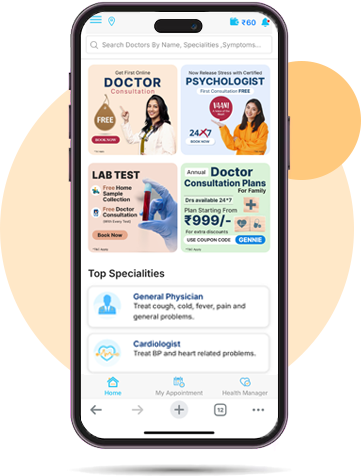Ayurveda and Important Herbs - Why Should We All Use These in Our Daily Life?
April 29 , 2020

Ayurveda is a traditional holistic therapy."
Ayurveda is translated from Sanskrit as "life science". Ayur means "life" and Veda means "science". The Indian system largely depends on the support of plants as the main component of its medicine.
In all Indian homes that use "home remedies," most herbs, spices, seeds, roots, leaves, stems, petals, and flowers are deeply rooted. Even certain family members in certain families can cure even complex diseases with simple and cost-effective formulas, which sometimes show wonderful and amazing effects.
In today's world, we are seeking a comprehensive and completely natural remedy that is not only a form of folk remedy but also a real and reasonable medical system that is sensitive to both nature and the earth.
This is exactly what Ayurveda can provide because it has thousands of years of clinical tradition and has comprehensive natural treatments from diet, herbs, and massage.
Through Ayurveda, we can learn the right diet for our individual, how to improve the immune system, the key to the correct use of sexual energy and youth, and a conscious lifestyle that can enable us to raise awareness to a new level.
Ayurveda Principles and Theory
The Ayurveda system is the main aspect of herbal medicine, and its basic theory revolves around the imbalance or lack of three kinds of humor (doshas). Talk with The Best Ayurveda Doctor in Jaipur to know how Ayurveda has been a constant source of healing and treating ailments for ages.
Ether (Akash), air (Vayu), fire (Agni), water (Jal), and earth (Prithvi) are the five important elements that makeup living structures. These five elements are constantly changing and interacting and can also be simplified into three vitiations (doshas). Doshas help maintain harmony and balance, so your health will not be disturbed, but when their balance is disturbed, the imbalance will lead to a disease state.
Vata (wind), Pitta (bile), and Kapha (phlegm) are three doshas. Due to the advantages of a dosha, a person's character is determined to be "Vata-Prakriti", "Pitta-Prakriti" or "Kapha-Prakriti".
Vata, formed by air and ether, controls all physical and mental motions and must maintain a good balance.
Pita constitutes fire and water, and controls "all the heat, metabolism, and transformation of the body and mind.
Kapha, formed by water and soil, ties the elements in the human body together and provides substances for the physical structure.
Everyone has a separate mix of three doshas; one or sometimes two doshas dominate.
Common Herbs Used in Ayurvedic medicine
Amalaki (Amla, Indian gooseberry, or Emblica Officinalis) fruit is considered to have the highest vitamin C content of any naturally occurring substance in nature. It can maintain the balance between the three doshas, effectively control digestion problems, strengthen the heart, normalize cholesterol, prevent cancer, establish and maintain defense mechanisms, improve vision, and detoxify the body.
Amla is said to have 20 times more vitamin C than an orange. Amla has a vitamin C content of 625 mg to 1814 mg per 100 g. Other studies have shown that amla can increase red blood cell count and hemoglobin.
Ashwagandha (Winter Cherry or Withania Somnifera): Ashwagandha is one of the main herbs in Ayurveda that rejuvenates the body. It is a well-known semen accelerator that can treat Yang imp infertility.
Clinical studies have shown that Ashwagandha has antibacterial, anti-tumor, anti-inflammatory, and immunomodulatory properties. Powerful anti-stress factors increase memory and learning ability. Consult with The Best Ayurveda Doctor Near Me to know the right use of ashwagandha in your routine. It is also found that it can be used for rheumatic or arthritis diseases such as pain, swelling, etc.
To sum up, it contains potent aphrodisiac, immunomodulating, anti-inflammatory, anti-tumor, and anti-stress qualities, which amply justifies Ayurveda's high regard for this herb as a general supplement.
Arjuna (Terminalia Arjuna): This product is a top-notch cardiotonic. Lam kernels have proven helpful in the treatment of cardiac conditions since 500 BC. It is effective in treating coronary artery disease, heart failure, angina pectoris, and perhaps hypercholesterolemia, according to clinical research. The main advantages of Terminalia Arjuna appear to be an improvement in cardiac muscle function and an improvement in heart pumping activity.
Brahmi (Bacopa, Gotu Kola-Brahma) is called "the food of the brain". Traditionally, Brahma is used as a spiritual supplement to rejuvenate the body, as a memory booster, and as a nerve supplement. It promotes calmness, clears the mind, and improves mental function. Modern research says that Brahma can improve one's memory and help overcome the negative effects of stress.
Brahma is befitting for students because it improves the ability to learn and concentrate, and it is also suitable for elderly people who want to restore their memories.
As a supplement for nerves, it will help those affected by stroke, neurasthenia or exhaustion, and attention deficit disorder. The best Ayurvedic brain and memory formula contains Brahman, as do many longevity compounds.
Guggulu (Shuddha Guggulu, Guggul, Commiphora Mukul): Modern research claims that it is the main herb used to treat high cholesterol and obesity. Studies have shown that agar can help reduce serum cholesterol levels and phospholipids and can also prevent cholesterol-induced atherosclerosis. In these clinical studies, it was also found that guggulu can reduce weight.
Guggulu also has anti-inflammatory effects, which help in treating arthritis and other joint pains.
Karela (bitter gourd, bitter gourd, bitter gourd): It is reported that at least three groups of bitter gourds with different ingredients have a hypoglycemic effect. These include a mixture of steroid saponins called charantin, insulin-like peptides, and alkaloids. Scientific research has always shown that bitter gourd can lower blood sugar levels in people with type 2 diabetes.
Neem ( Azadirachta, India) Neem is an extraordinary blood cleaner that's salutary for colourful skin conditions such as acne, eczema, psoriasis, and epoxies. Indian em (neem) is included in most Ayurvedic skin products because it's as effective in external operations as it is in internal dyspepsia. In Ayurveda, it has been used safely for more than 5,000 times and is a good vulnerable enhancer against snap, complications, infections, and colourful skin conditions.
Shilajit (mineral asphalt, asphalt) Shilajit is one of the main Ayurvedic composites that rejuvenates the body. It's an aphrodisiac and anti-aging condiment that can treat diabetes and weaken the urinary system. Charaka Samhita refocused on the fact that a person must start using Shilajit for at least a month before they can realise that they will regenerate their goods. Also, it's used to treat yang and gravity.
Shallaki (Boswellia serrata, Salai Guggul) Modern exploration shows that frankincense may help treat common mobility and pain and may be a useful treatment for colourful seditious conditions such as rheumatoid arthritis and osteoarthritis. Boswellia It has been set up to be useful for numerous other conditions and is most suitable for the treatment of reverse pain, knee pain, arthralgia, and arthritis.
Triphala (Amalaki, Bibhitaki, and Haritaki) Triphala consists of three notorious nutrients: amla, haritaki, and bibhitaki. It has sanctifying and detoxifying effects. However, it can be conducive to accelerating detoxification of the digestive tract and deep apses if used regularly. It also has the capability to normalise all three senses of humour through nonstop use.
Tulsi (holy basil, tabernacle): Its name, holy basil," proves its sacred substance. It's a sacred factory worshipped by numerous families in India, and it's also an essential drug in every house of Hinduism.
Conclusion
Trust the process. Ayurveda is a medical science that has been in trends since ancient times. To heal and treat any illness, injury, syndrome or disease Ayurveda has answer to all. Get Online Medical Consultation with top specialists on Health Gennie to cure your health problems with ayurvedic fundamentals.
Disclaimer:
The information on this blog is not a substitute for any professional medical diagnosis or treatment. The blog contains text, images or graphics are solely for informational purpose. Before implementing the information mentioned above, seek the advice of a professional doctor regarding any doubt or question you may have about the medical condition or treatment. Also, take the advice of a professional health care provider before making changes in your health care routine.











